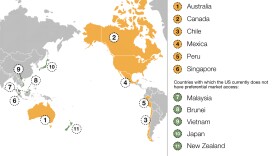By Michael Cohen
http://stream.publicbroadcasting.net/production/mp3/wkms/local-wkms-931746.mp3
Murray, KY – Halloween is the perfect excuse to indulge in scary stories, tall tales and murder mysteries. Commentator Michael Cohen pulls out his detective bag for an uncommon mystery novel about the covering up of a murder by members of the Mumbai police force. It's by H.R.F. Keating, an English crime fiction writer best known for his series about Inspector Ganesh Ghote. The 15th book in the series, Under a Monsoon Cloud.
In Under a Monsoon Cloud, H. R. F. Keating's Inspector Ganesh Ghote becomes a criminal an accessory to a crime when he suggests and then aids in the concealment of an accidental killing by a fellow officer he admires. He does it because the killing is a momentary lapse on the part of the officer, Assistant District Inspector General "Tiger" Kelkar, whose career has been otherwise spotless and exemplary. Kelkar has hurled an inkpot at an incompetent subordinate, Sergeant Desai, intending to frighten him, but the inkpot not only strikes the stupid sergeant, but hits his temple and instantly kills him. Ghote suggests that he and Kelkar take Desai's body to nearby Lake Helena and make it look as if he drowned while trying to swim across. Later, when Desai's blood-stained jacket is found, Kelkar commits suicide, leaving a note that says he acted alone. But Ghote is suspended, charged with aiding in the cover-up, and summoned to an inquiry. He hires Vimala Ahmed, a civil liberties lawyer who has previously been the bane of the police, but he does not tell her the truth until very near the end of the proceedings. When he tells her, she refuses to act further for him but remains at his side because it is too late for him to get other representation.
You will have to read the book to see how this all turns out, but you can tell from this partial summary what makes Under a Monsoon Cloud an uncommon mystery. Ghote is forced to see things from the point of view of the malefactors he so often tries to catch. He gets a new view of the maneuvers of his lawyer, maneuvers which he previously regarded as lying, trick-playing, and relying on legal technicalities to shield guilty persons from just punishment. He gains the perspective of a defendant and sees through the eyes not of an innocent one but a guilty one. Under a Monsoon Cloud is not merely about thinking like a criminal an ability useful to all detectives but rather about being a criminal and seeing every effort to bring about justice as an enemy action. In this sense the book has more of its roots in Dostoevsky than in Arthur Conan Doyle.
This is the fifteenth book in Keating's series about Ghote, whose fans will be happy to learn that he is neither corrupted nor destroyed by his experiences here. Despite the advice of his wife, the pandit of his temple, and his old school friend, Ghote manages to tell the truth and still remain a policeman.
Michael Cohen is Professor Emeritus at Murray State University. His book Murder Most Fair: The Appeal of Mystery Fiction was published by Fairleigh Dickinson University Press and is available on Amazon.com.
Click here for more 'good reads' from the WKMS staff.




